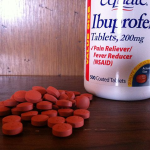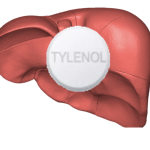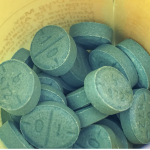If you're one of the 100% of viewers who want to put a brick through your TV when one of the ceaseless, nauseating Ozempic ads comes on there's hope on the horizon. Pfizer has a pill that seems to work as well as the O-O-O-Ozempic injections. Perhaps this will shut up those wretched ads. A look at Pfizer's clinical trial data.
Drugs & Pharmaceuticals
Melatonin is a neurohormone that the body uses to regulate sleep. It's sold as a dietary supplement without a prescription. As the CDC states, in "2020, melatonin became the most frequently ingested substance among children reported to national poison control centers.”
Drug shortages mean that many patients are getting the second or third choice of a medicine, increasing the likelihood that the drug will be ineffective or only suboptimally effective, or have unwanted side effects. Reciprocity of approvals between the U.S. and certain other countries could help to address that.
An FDA expert panel just recommended unanimously that one type of birth control pill should be sold over the counter. Drs. Jeffrey Singer and Josh Bloom argue in their opinion piece in Reason Magazine that the FDA should not only approve the so-called "mini-pill" but allow other types of oral contraceptives to be sold OTC as well – something that is permitted in 100 countries around the world.
There's considerable ongoing research to develop analgesic medications that don't have the liabilities of NSAIDs and opioids. Many potential drugs are in various stages of development. Most will fail. This multi-part series will examine drugs in development and their potential utility. First up is VX-458, a Phase III candidate from Vertex.
The agency's primary functions are ensuring food safety, regulating tobacco products rationally, and expeditiously approving new drugs and medical devices. It's failing. Instead, we're getting increasingly complex organizational structures and the commissioning of endless reports.
High-tech medicine and dentistry can be miraculous but are often hugely expensive. We also need to pursue – and fund – research on ingenious, low-tech, less expensive approaches to improving health and increasing longevity.
Reflecting on the possible causes of his Parkinson's Disease, Fox recently told CBS News that he "did some damage" and that alcohol or chemical exposure could have contributed to – or even caused – his condition. While Fox’s comment is only speculation, a similar incident is not: in 1976, a young chemist inadvertently injected himself with a toxic impurity in a drug he made in his lab. It caused an unprecedented case of Parkinson's.
Johnson & Johnson is working on a drug to repair liver damage caused by Tylenol, which has made the company billions since it was launched in 1955. Isn't this a bit like having a dentist's office in the back of a candy store?
Lost in the discussion of the alleged danger of opioid medications is that most of them also contain acetaminophen (Tylenol). Although acetaminophen is generally seen as benign, it is not. Here is what happened when the FDA cut the maximum acetaminophen dose to 325 mg. You may be surprised.
Entasis Scores! The FDA's anti-infectives advisory board unanimously recommended approval of Entasis sulbactam-durlobactam for the treatment of hospital and ventilator-acquired pneumonia, caused by resistant strains of Acinetobacter. Wonderful news. But will the company survive?
Adderall, one of the primary drugs to treat ADHD, has been in the news lately because of a shortage. But there are a number of different ADHD drugs that contain amphetamine – the active ingredient in Adderall. Perhaps this will help clarify what's going on.











